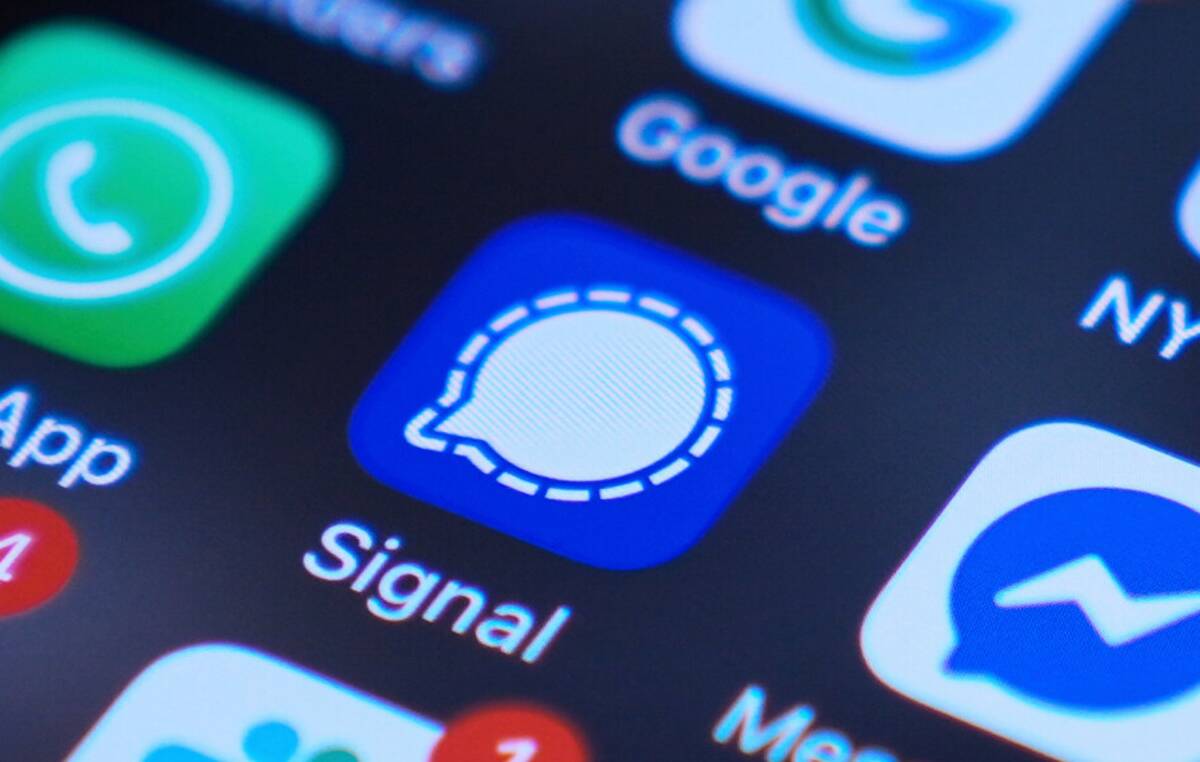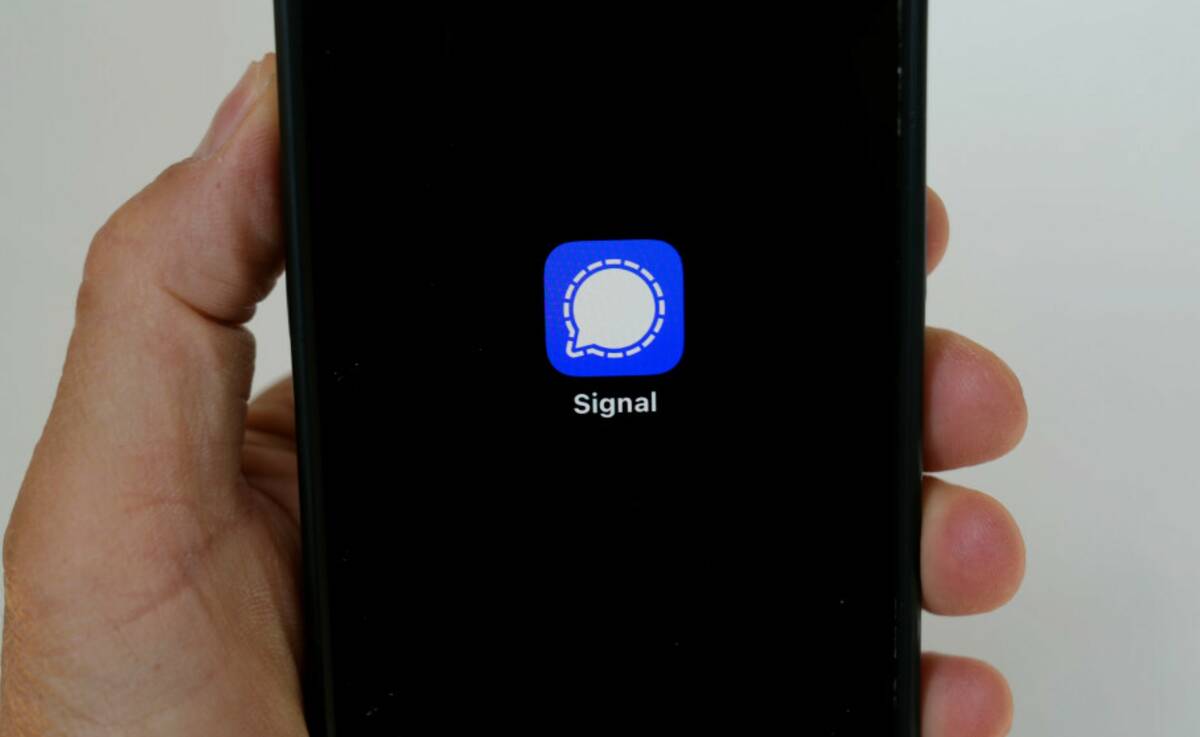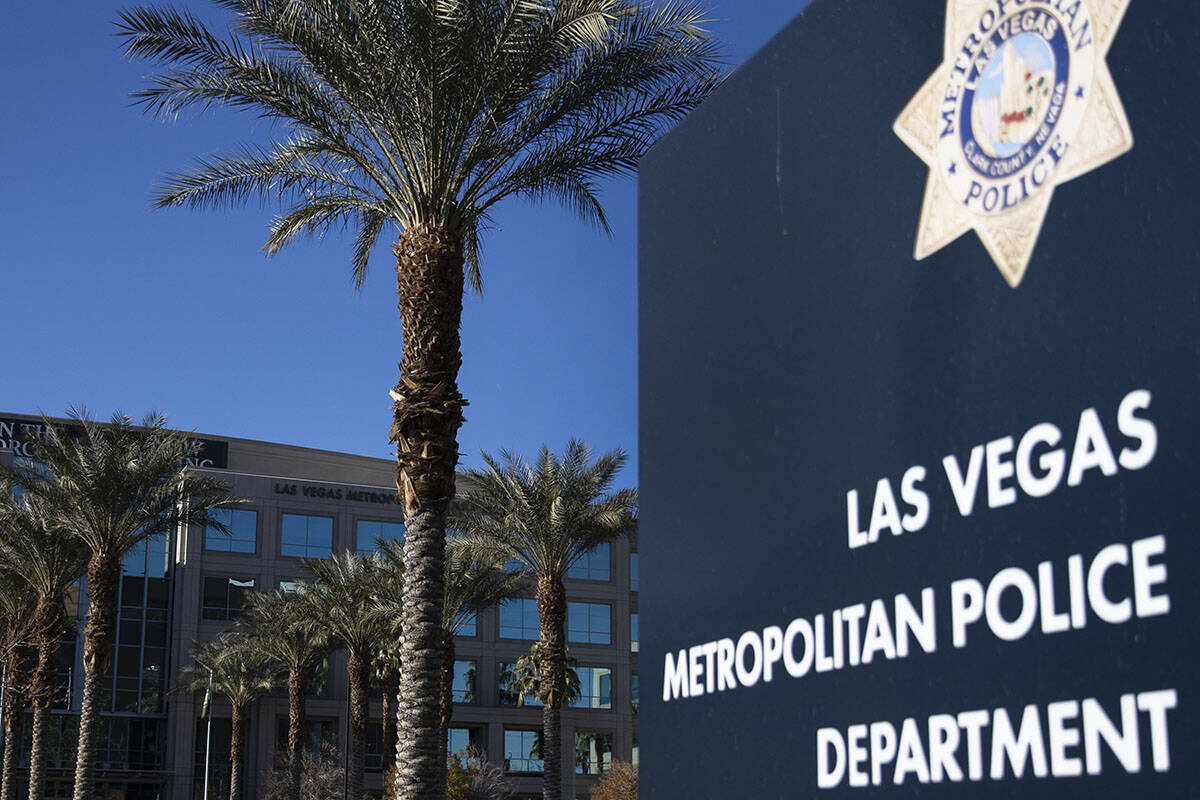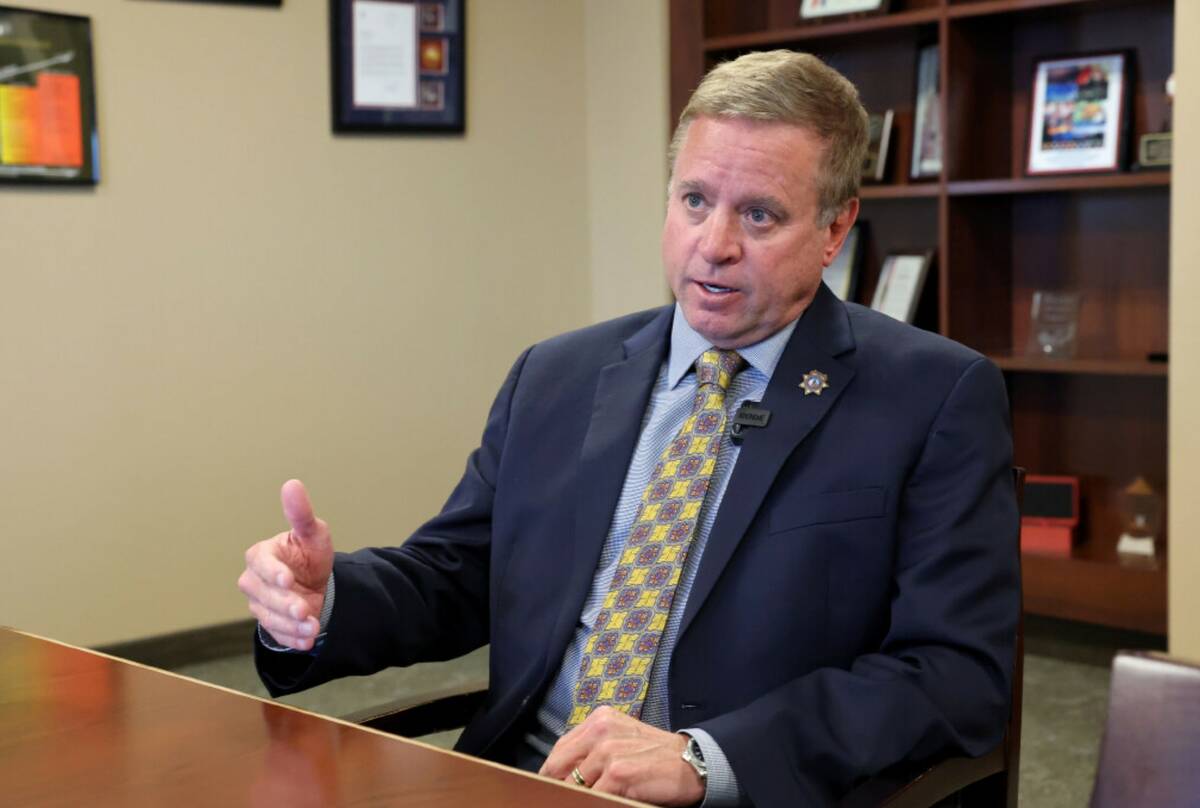Are high-ranking Las Vegas police officials using Signal app too?
New court filings from lawyers for a suspended Las Vegas police sergeant suggest that the Metropolitan Police Department has been using a messaging app designed to skirt transparency to a greater extent and at higher levels than previously disclosed.
Signal, known for end-to-end encryption and messages that disappear, has figured prominently in the criminal case of Sgt. Kevin Menon, accused of illegally detaining people on the Strip.
As Washington grapples with the disclosure of a Signal chat discussing an attack on Yemen’s Houthis, recent court filings in Las Vegas suggest that, despite Metro’s assertion that communicating via the app would violate its policy, Signal’s use in the department may be far-reaching.
In a motion to dismiss charges against Menon, his lawyers alleged that Menon was invited to a Signal chat by supervisors at Metro, including Cary Underwood, director of the Southern Nevada Counter Terrorism Center, and that Dori Koren, who has since been named assistant sheriff, also used the app. Metro did not respond to requests for interviews with Underwood and Koren, but Sheriff Kevin McMahill addressed Signal in a Wednesday interview.
“I don’t know if we’ve had any discipline arise out of the recent allegations, but those allegations are still being looked at,” McMahill said. “And let me just say this to you: Signal is prohibited, and so are other end-to-end encryption apps.”
Experts argue that a policy that is not followed or enforced may not be a true policy at all. They say the use of Signal also poses problems for public transparency and the discovery process, in which records must be disclosed as part of criminal or civil litigation.
“Open records laws are pretty meaningless if government officials can just evade them by using their personal devices to communicate,” said Chicago-based First Amendment lawyer Matt Topic.
Signal in Menon’s case
In October, Menon was indicted by a Clark County grand jury on counts of oppression under the color of office, subornation of perjury and battery on a protected person. Authorities also have alleged that he possessed more than 500 sexual images of young girls.
On Friday, Menon was indicted again on 28 counts of capturing the private area of another person. Prosecutors have accused him of recording his wife and sister-in-law while they used the bathroom.
Menon has recently said he was targeted after trying to fight a “culture of racism and excessive force” at Metro. Police have said the opposite, that he “was targeting persons of color for illegal arrests.”
When prosecutors questioned officers who worked with Menon, Signal came up.
“The way that we communicate, we use an app called Signal,” Justin Candolesas, a Metro officer who was part of Menon’s squad, told grand jurors.
Another Metro officer, Stephen Corsaro, was asked by prosecutors whether Signal messages are kept as records. He responded that the app has an automatic delete function.
Defense attorneys Dominic Gentile, Vincent Savarese III and Austin Barnum said in Menon’s motion to dismiss that Signal messages showed “shocking and brazen racism that runs rampant and unchecked in the department.”
“Ferguson was asking why we stop so many black people … so hes not making it next time on the list,” stated one message, which did not give a first name for Ferguson.
In another, someone wrote, “Calder finally stopped beating minorities but he’s still ivies problem child,” apparently referencing Sgt. Travis Ivie, with whom Menon clashed, according to court records. The identity of Calder was unclear.
Additional messages refer to suspects as a “big a— BMA” or “Savys,” which attorneys said are terms for “black male adult” and “savages.”
A February 2023 message, attached to the motion, lays out a list of incidents that “need to be briefed over Signal,” including threats to casinos, threats of mass violence, threats to high-profile victims and cases where the media have requested information or records.
Metro did not respond to requests for interviews with officers involved in the Signal conversations.
Why would officers use Signal?
Steve Grammas, president of the Las Vegas Police Protective Association, which represents Metro officers, said he doesn’t think Metro can tell officers not to have Signal on their personal devices. But it’s a clear violation of state law to use end-to-end encryption on department phones, he said.
A 2021 Nevada law says, “A law enforcement agency may not approve for official use on a mobile device any mobile application that uses end-to-end encryption or any other means with the intent to avoid the creation, retention or lawful discovery of records or data relating to the communications of a peace officer.”
McMahill said the department is considering whether it can allow officers to use apps like Signal, but with a retention period that complies with the law.
Attorneys have theories about why Metro officers might want to use Signal.
Las Vegas defense attorney Michael Sanft said that in a case over a year ago, a detective in the Spring Valley Area Command insisted on communicating over Signal.
“My guess is he was trying to communicate but at the same time erase the communication so that there would be no issue later if there was any discussion about his communication with an attorney,” Sanft said.
He declined to identify the detective.
“I’m not going to speculate on their motivation,” said Maggie McLetchie, a Las Vegas attorney who is treasurer of the Nevada Open Government Coalition. “But I fear that it’s used to avoid creating a paper trail, to avoid evidence, to avoid documenting actions and communications and to avoid the reach of the public records act. And frankly, when you look at the very disturbing communications among Metro officers and I think others in the chain that were attached to the motion to dismiss, it appears (to be) so they can be free to say really inappropriate things that they should not be communicating at work.”
Deleting those messages could be a violation of retention laws, said Topic, the Chicago attorney.
“If these things are set to self-delete, then that’s a huge problem,” he said. “If there’s a pending FOIA request, then records should not be deleted.”
Does Metro have a real policy?
In addition to open records issues, McLetchie said Signal could be a way to avoid creating a record for criminal and civil cases.
“If officers think they can just say whatever they want on Signal and never have to produce them in discovery, that undermines civil rights plaintiffs’ ability to prove their cases,” she said.
Robert Draskovich, Menon’s lawyer in the child sexual abuse material case, said police would want to use Signal partly because it allows them to avoid disclosing communications in court that would otherwise be provided to attorneys. Signal makes subpoenas for detectives’ communications impossible, he said.
McMahill said he thinks Metro would disclose messages on a platform like Signal if the department discovered such an app was used, but he said the issue was complicated by the fact that some officers have used their personal phones.
Experts also raised questions about Metro’s enforcement of its policy.
“They said they don’t allow it, but it’s clearly happening, including with people that are not just low-level officers,” McLetchie said.
She added: “Metro obviously needs to do better. I applaud Metro for saying that it is the policy and should be the policy that they don’t use Signal. But that’s obviously not the actual policy and practice.”
If Metro learned that officers were violating the department’s policy banning Signal, Denver First Amendment attorney Steven Zansberg said, he’d expect the department to discipline the officers involved.
“To not enforce their policy in the face of known violations certainly sends the opposite signal,” he said.
Contact Noble Brigham at nbrigham@reviewjournal.com. Follow @BrighamNoble on X. The Associated Press and Review-Journal reporter Katie Futterman contributed to this report.






















